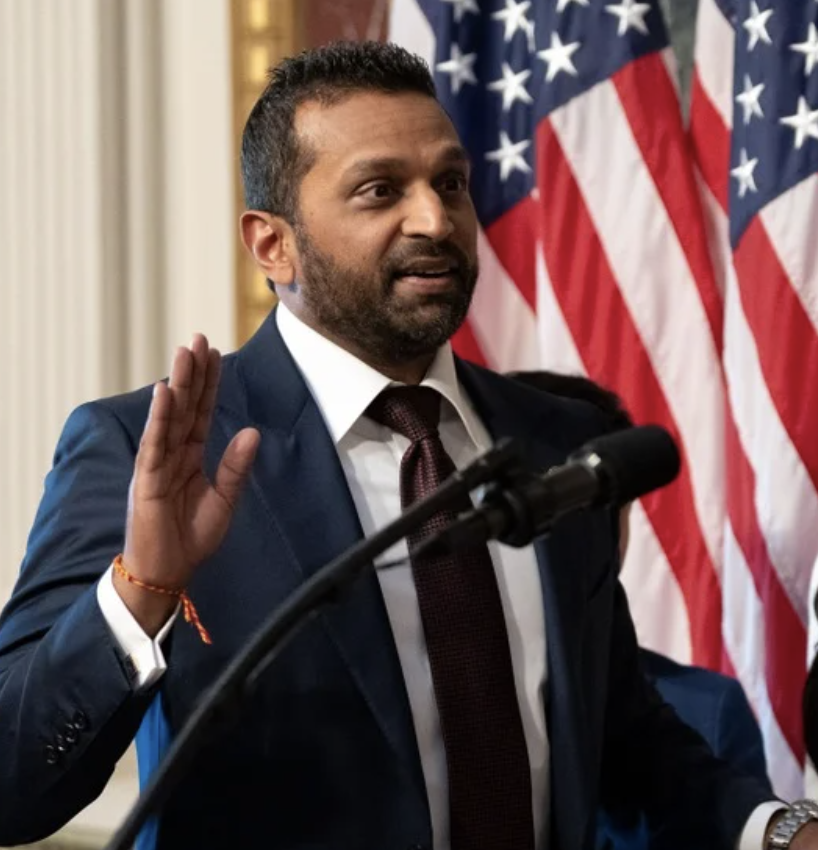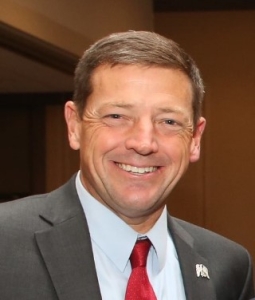Arguably, the most important product America has to give to the third world nations and emerging democracies in a dangerous and volatile world is not foreign aid or preventive military action but support for the rule of law. Several hundred federal law enforcement officers and attorneys sacrifice personal security and the comforts of hearth and home to promote this objective.
The Lemisch family from the Detroit area was excited about their one-year adventure to Belgrade, Serbia where Dan would assume the duties of a Resident Legal Advisor attached to the U.S. embassy. Dan, an assistant U.S. Attorney, had previously served short term training assignments in Moscow, Siberia, Indonesia and Nigeria, and enjoyed the experience. But each member of the family made sacrifices for the move. Carol put her own legal career on hold and temporarily abandoned the comfortable suburban home she had decorated. The children, Ben and Sophie, left their friends and activities during important high school and middle school years. Dan not only gave up the possibility of promotion in the Detroit U. S. Attorney’s Office, but also handed off drug and money laundering cases he had worked for several years to prepare.
Still, all four arrived in Belgrade last January enthused about the experience to come. Their arrival occurred at a colossally inopportune time in U. S.-Serbian relations. One month after settling in, Serbian resentment over the U. S.-led recognition of the secessionist state of Kosovo, the ancestral heartland of Serbian Orthodoxy, boiled over as tens of thousands of outraged Serbs demonstrated outside the U. S. Embassy. Some of them stoned the building, broke in and set it afire, as Serbian authorities watched. No Americans were hurt, but families and non-essential Embassy personnel were evacuated from the country. Dan’s family was ordered to return to Michigan while he remained in Belgrade to begin his duties under inauspicious circumstances.
Surprisingly, however, Dan found the Serb judges, prosecutors and police officers both friendly and receptive to his efforts. Most of his time has been spent as an instructor for various groups who are in the process of reforming the Serbian justice system. Their efforts are key to the eight-year struggle in Serbia between the forces of virulent, pro-Russian nationalism and the country’s democratic transformation, which could lead to membership in the European Union and ties to the West. Fortunately, the latter seem to be winning.
Dan copes with the separation from his family by keeping a busy schedule. He helped a working group of police and attorneys draft Serbia’s first asset forfeiture law, which passed the Parliament in late October. His unique contribution was a provision for administrative forfeiture, a method of avoiding court hearings on non-contested assets. This addition to the law should save hundreds of hours of already scarce court time. His office also helped create a regional witness protection program for Serbia, Montenegro, Bosnia, Macedonia, and Bulgaria where each country has the ability to hide its protected witnesses in the others. Dan recently traveled to Albania to assist the Serbian War Crimes Prosecutors Office, which is investigating the 1999 kidnapping of 300 Kosovar Serbs who were imprisoned, tortured and whose organs were allegedly harvested and sold in Western Europe. Despite the political sensitivity of this case to Albania, he and the Tirana RLA were able to broker a productive meeting between Serbian prosecutors and the Albanian Ministry of Justice to facilitate the investigation.
American concepts of justice are often foreign in Serbia, as in many “civil law” countries. For example, their criminal law recognizes no burden of proof. Nor do the prosecutor and case agent have the opportunity to organize its evidence and present a case. These tasks at the heart of American jurisprudence are, instead, the province of the court itself.
Much has been accomplished this past year by Dan and the other members of the RLA staff in Belgrade. Perhaps the most important of these has been the good will which has developed with the attorneys and police of both nations. In a time when American popularity abroad is said to be at an all time low, these rank and file professionals are forging relationships which are helping to reverse this trend.
Dan isn’t the only one helping from the Detroit area. In fact, at a time when the world questions its ability to provide cars, Detroit continues its longtime tradition in supplying international law enforcement trainers. Former U. S. Attorney Steve Markman made repeated trips to the Ukraine Republic to help its founding fathers draft a new constitution. DEA Country Attaché George Papadopoulos, using Athens as a base, travels throughout the Balkans with not only enforcement support for those countries but also training sessions on undercover work, financial investigation, intelligence gathering, and other tools of American federal agencies. AUSA and Drug Unit Chief Kathy McCarthy just returned from a trip to Belgrade where she participated in a seminar on the ins and outs of money laundering prosecutions. DEA agent Ed Donovan went to the same site with a team of lawyers and agents to present a program on cooperating witnesses. These missions sometimes provide cultural experiences out of the Americans’ comfort zones.
Former Detroit DEA agent John Graetz spent four years supporting Brazil’s law enforcement and two more as an international training supervisor. In a trip to Kazakhstan where he and other agents presented a drug enforcement school, the regional Kazakh leader planned an all-day wild mountain goat hunt to celebrate the occasion. After much traipsing in the cold mountain air, a magnificent goat was killed and grilled at an outdoor feast held in the Americans’ honor. Following many vodka toasts and declarations of good will, the Kazakh leader presented John with a bowl containing the delicacy of the roasted animal. With everyone watching, John looked into the bowl to find two reproachful goat eyes staring up at him. Not wishing to offend, he swallowed one eyeball whole, palmed the other one and much celebratory gunfire ensued.
Like Detroit, many other American cities and agencies contribute international trainers to help build law enforcement capabilities. The Department of Homeland Security’s Federal Law Enforcement Training Center sponsors training sessions in Glynco, Georgia as well as overseas for foreign law enforcement officers. The International Law Enforcement Academy, formed in 1994 under the leadership of the FBI, now has centers in Bangkok, Budapest, Gabarone, and San Salvador. These centers provide up to 5 eight-week sessions a year for thousands of international police in such subjects as financial management, human rights, ethics, and rule of law. Instructors from FBI, DEA, Secret Service, ATF, IRS, the State Department, Department of Energy, and Homeland Security, as well as other countries, lead sessions on their areas of expertise.
A third U. S. program is the International Criminal Investigative Training Assistance Program. Created in 1986, this DOJ-State Department program is located in 17 field offices and serves 45 countries. The 168 trainers in the field, as well as several hundred contract law enforcement personnel, organized 1117 training events involving 82,911 foreign participants this year. ICITAP provides a comprehensive program of public safety training and assistance for foreign law enforcement officers. Perhaps the most dangerous and important of these projects involve the deployment of attorneys and agents to Afghanistan and Iraq. About 300 federal employees spend up to one year in the danger zones serving as mentors and trainers forthe new generation of law enforcement in those countries who are building a criminal justice system from the ground up.
Before peace and freedom comes security. These American ambassadors sacrifice attending their children’s soccer games and the comforts of home to provide, inch by inch, progress on the rule of law to developing nations, something it has taken ten centuries of Anglo-American tradition to achieve.





4 thoughts on “Federal Law Enforcement’s Goodwill Ambassadors”